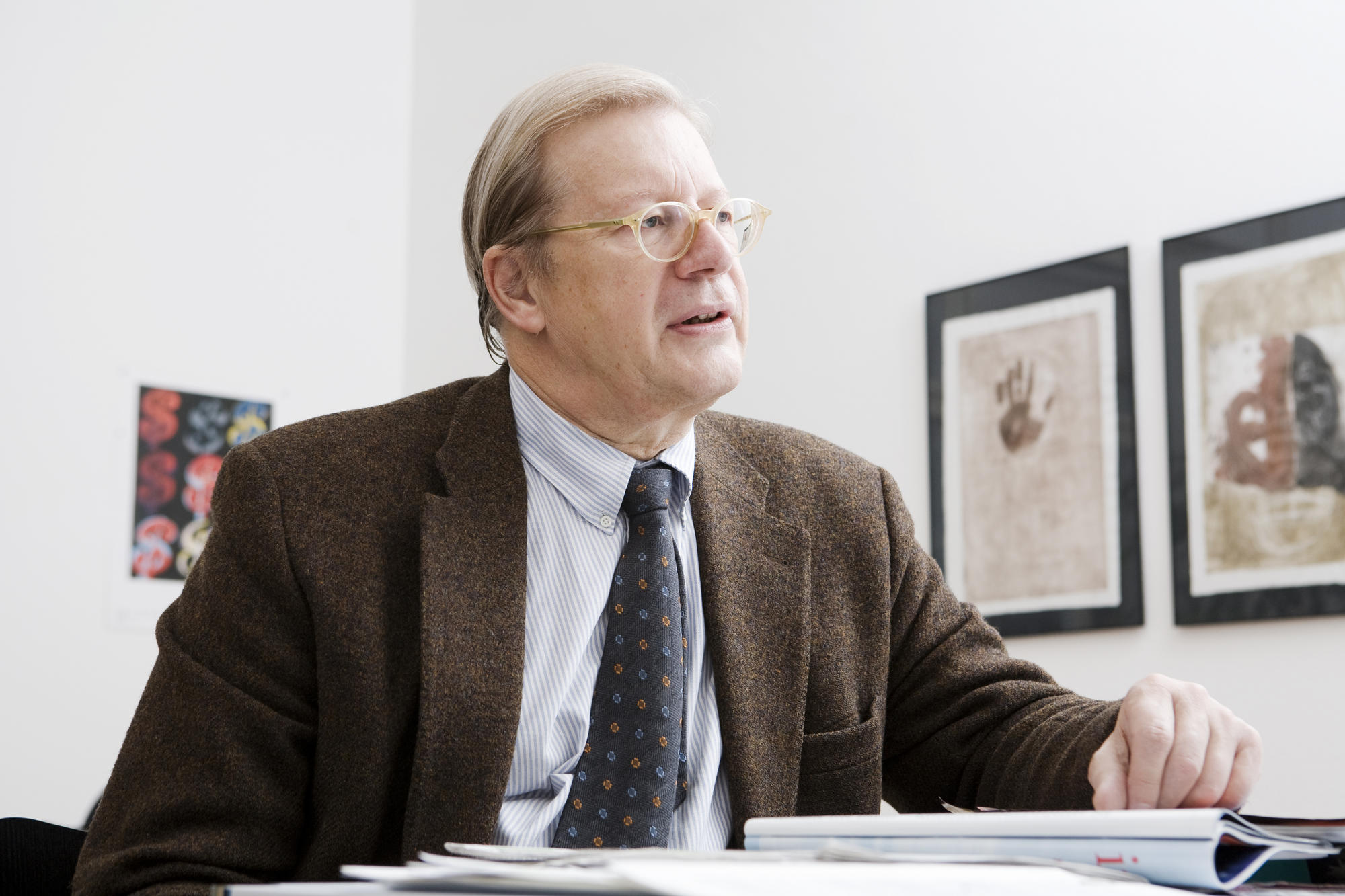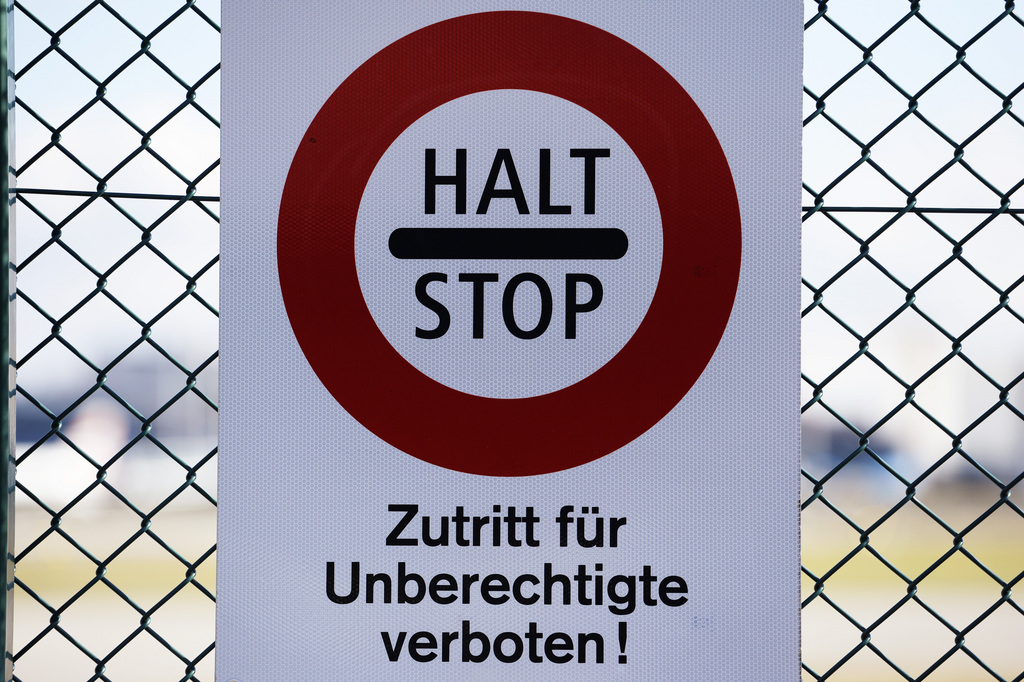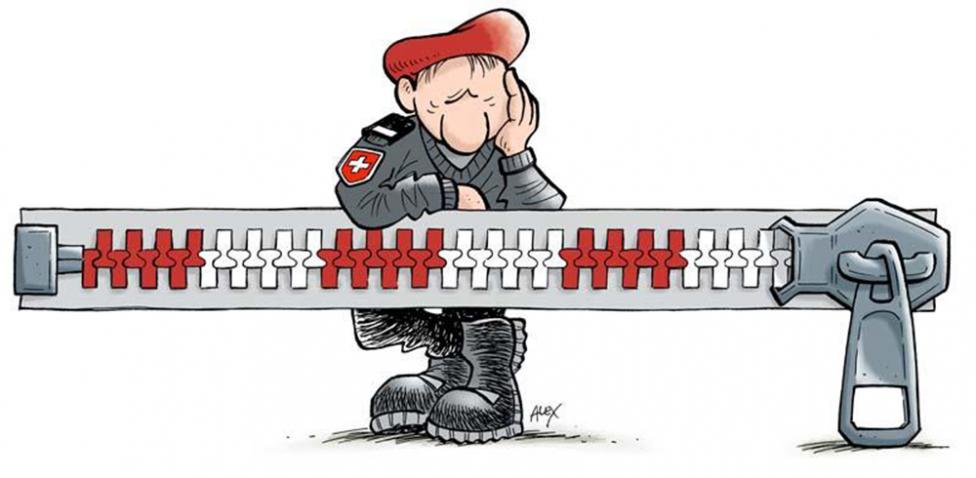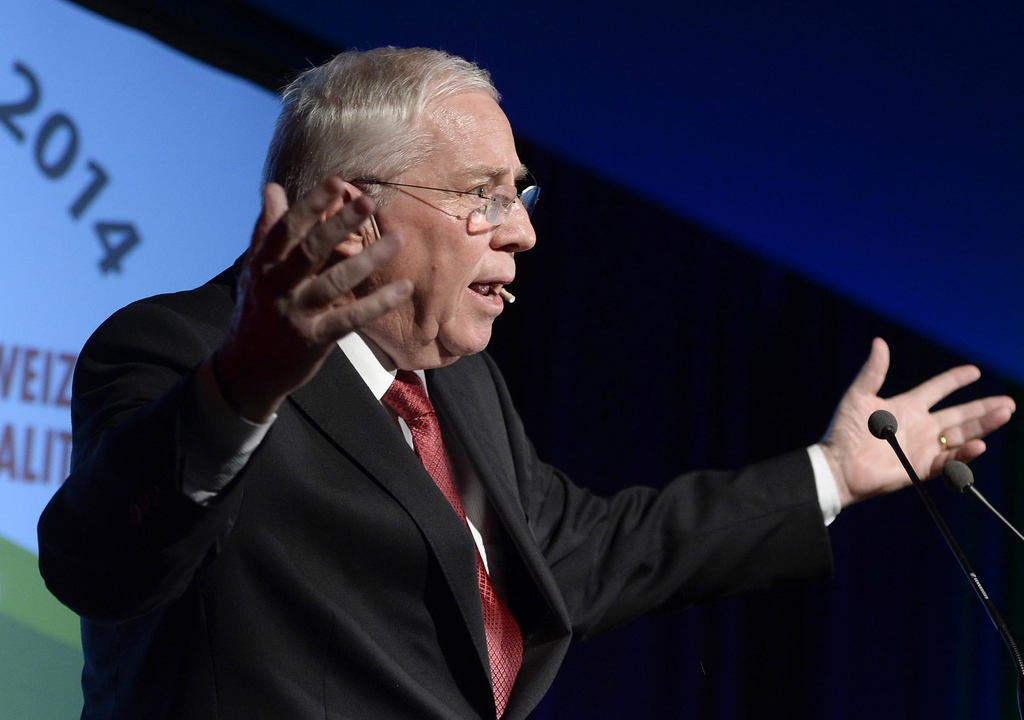Vote is “wrong therapy” for a complex problem

Switzerland’s acceptance of the immigration initiative corresponds with the image of a sovereign and brave people which is deeply anchored within the collective national consciousness, says political philosopher Georg Kohler.
But the country is now faced with the decision of either accepting the economic consequences of its isolation or admitting that this image no longer tallies with reality, the Zurich University emeritus professor said.
French-speaking Switzerland came out against the initiative, meaning that it now has to accept a decision made by the German-speaking part, which makes up the majority of the country.
The French-speaking region has already been accused of being less in touch with the country by a leading politician behind the vote, the rightwing Swiss People’s Party’s Christoph Blocher. Local politicians have reacted angrily to the accusation.

More
Immigration vote remains front and centre
swissinfo.ch: Is multilingual Switzerland in danger of breaking apart?
Georg Kohler: We have two sides: those against and those in favour. I think it’s wrong to say that they are only divided along language lines. Big cities and populous cantons in the German-speaking regions rejected the initiative. Apart from in rural areas, there are major divisions. I tend to disagree, though, that this means that we’re falling apart. But it is an indication of a deep-seated difference which is reflected to varying degrees throughout the land.
Ultimately, we’re talking about what is referred to as national sovereignty or Swiss independence, and the question is to what extent we can accept or not accept that our country is dependent on its surroundings. That is where the division lies.
swissinfo.ch: Christoph Blocher accuses French-speaking Switzerland of not fighting hard enough for Swiss independence. How then is national sovereignty defined?
G.K.: It’s understandable that French-speaking Switzerland denies this and is outraged. Geneva never wanted to belong to Savoy and certainly never to France, but joined Switzerland as a proud example of sovereignty. What held Switzerland together initially – the desire not to belong to bigger areas, the neighbouring countries – is evident everywhere.
National sovereignty? There we have to make a distinction. There is the myth or maybe even the fantasy of small, brave groups that won’t let themselves be defeated, that don’t attack anyone, and that won’t give up their independence – the myth of central Switzerland or the Asterix and Obelix village in Gaul.
But the myth clashes with social, cultural and economic opportunities. Switzerland has been living for a long time with the illusion of the greatest possible self-determination. But sovereignty involves the right to self-defense and the right to declare war. That ended long ago. The European states can only maintain their right to sovereignty through their participation in NATO. Switzerland, with its armed neutrality, remained aloof, but in fact it did nothing more than ride on NATO’s coat tails.
The concept of self-determination, driven by the fantasy of Asterix’s village, no longer fits with the realities of today, but is still firmly anchored in Switzerland’s collective consciousness. Blocher and the Swiss People’s Party have affiliated themselves with this, but now that the resistance of the EU is evident, we’re faced with a choice between defending this Asterix and Obelix-style sovereignty or admitting that this idea of unlimited sovereignty is just not possible today.

More
Cartoonists unimpressed by immigration vote
swissinfo.ch: By voting ‘yes’ on the issue of so-called mass immigration, did Switzerland take a decision against the EU?
G.K.: That’s exactly the issue. It boils down to a choice between nearly complete independence, and the resulting isolation from the EU, with all the consequences – social and economic disadvantages – or a continuation of the bilateral approach, which requires more integration and certain limitations on direct democracy.
swissinfo.ch: Was it then a decision of a “Heidi” Switzerland against an open, globalised Switzerland?
G.K.: It would be wrong to say that only blockheads voted yes. There are also legitimate concerns over the increasing mobility of people and the continued use of resources, so about everything that has to do with this march of modern times.
The solution can ultimately only be tackled within the European environment. There are problems, but the idea that they can be solved with a seasonal workers clause and a cap on family reunification seems to me to be an illusion, and the wrong therapy.
swissinfo.ch: The result of the vote was extremely tight. The subject is highly complex and the precise consequences can’t be predicted. Is direct democracy reaching its limit?
G.K.: I wouldn’t put it like that. The advantage of direct democracy is that it makes the problems which worry the population visible. But it only works if you carry through what has been started. And I believe the system can do this.
But of course direct democracy can also be susceptible to populism and can be exploited. It took a really long time until women’s right to vote was introduced. The “yes” vote in favour of the “mass immigration” initiative was the wrong decision but it can be corrected because putting it into action requires decisions that will have to be voted on by the people.
I should think that when the initiative’s full consequences really become clear, the number of those in favour of its demands will shrink back to the real Swiss myth “fundamentalists”, which in is about 30% of the population at the very most.
(Translated from German by Jeannie Wurz and Isobel Leybold-Johnson)

In compliance with the JTI standards
More: SWI swissinfo.ch certified by the Journalism Trust Initiative

You can find an overview of ongoing debates with our journalists here. Please join us!
If you want to start a conversation about a topic raised in this article or want to report factual errors, email us at english@swissinfo.ch.